
Save the Date
Water Quality for Fisheries Symposium
October 19 – 20, 2026
Sturgeon City Environmental Education Center
Jacksonville, North Carolina
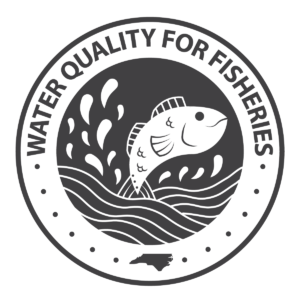
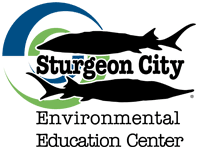
Coastal Carolina Riverwatch will host the 2026 Water Quality for Fisheries Symposium on October 19 and 20 at Sturgeon City in Jacksonville, North Carolina. Bringing the symposium to Onslow County reflects the strong leadership and engagement shown during the 2025 event, including participation from multiple Onslow County Commissioners who attended sessions, listened to fishermen and researchers, and took part in discussions about water quality and fisheries impacts.
Call for papers
Email proposals for presentations to waterkeeper@coastalcarolinariverwatch.org
Deadline of May 5th
x
~2025~
The Water Quality for Fisheries Symposium is an annual event that provides a collaborative forum for the exchange of information on recent research, infrastructure best management practices, policy development, restoration and resilience projects, and advocacy that protects the quality of water and quality of life for all in coastal NC.
The Water Quality for Fisheries Symposium will be held at the
Duke Marine Lab in Beaufort, NC
October 27-28, 2025.

Building stakeholder and public support for improved water quality in North Carolina.X
Agenda
 Loading...
Loading...

Lodging Partner: Bask Hotel at Big Rock Landing
We are excited to partner with the Bask Hotel in Morehead City, NC, to offer discounted lodging for Water Quality for Fisheries Symposium participants.
Discount is valid for rooms booked through 5:00 PM on September 26th.
The discount applies to King Studios booked 10/26 – 10/28 at $103 per night.
- Rates do not include overnight parking of $7.00 per night.
- Rates do not include overnight Safe Fee of $1.50 per night.
- 48 Hour Cancellation Policy for the above room rate(s).
- Bask deluxe continental breakfast is included in the above rate(s).
To Book Online:
- Visit www.baskhotel.com
- Click the “Reservations+” box in the top right corner.
- Select “Add a Promo/Group Code” at the top.
- Enter the group code: WQF10262025 and click “Start Planning.”
- Choose the season you’re visiting.
- Enter your check-in and check-out dates.
- Follow the prompts to complete your reservation.
Prefer to Book by Phone?
Call the hotel directly at 252-499-9200 and mention:
Group Name: Water Quality for Fisheries Symposium 2025
Group Code: WQF10262025
Custom arrival/departure dates may be accommodated based on availability—please call the hotel directly for special requests.
Lodging Partner: Hampton Inn by Hilton 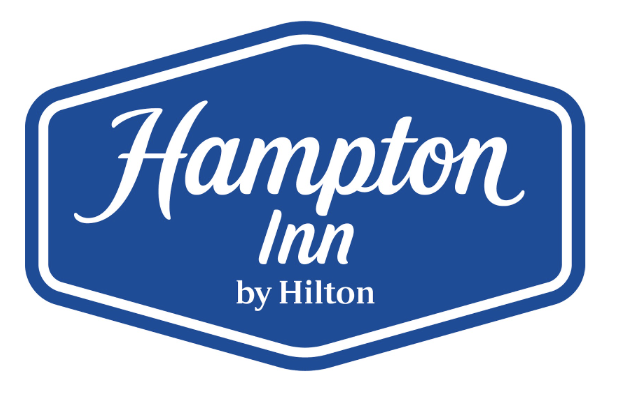
We are excited to partner with Hampton Inn by Hilton in Morehead City, NC, to offer discounted lodging for Water Quality for Fisheries Symposium participants.
The discount applies to Double Bedded Rooms with fridge and microwave booked 10/26 – 10/28 at $109 per night.
- Rates include overnight self-parking.
- Hotel does not have any additional fees or charges.
- 48 Hour Cancellation Policy for the above room rate(s).
- Hot buffet breakfast included, daily.
Call the hotel directly at 252-240-2300 or Hilton Reservations at 800-446-6677 and mention:
We encourage early booking to ensure availability during this busy season in Morehead City.
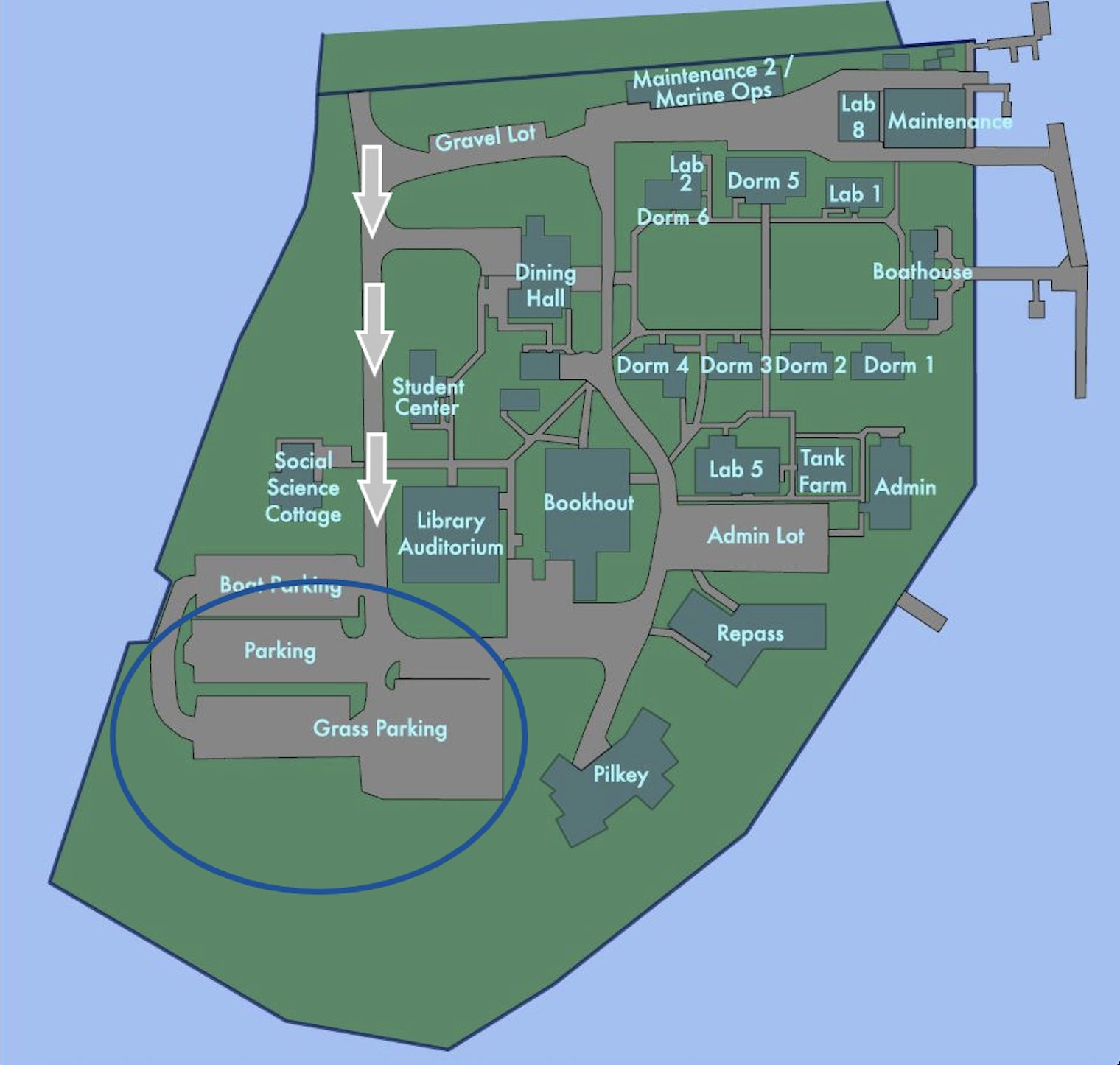
x
Thank You Sponsors!
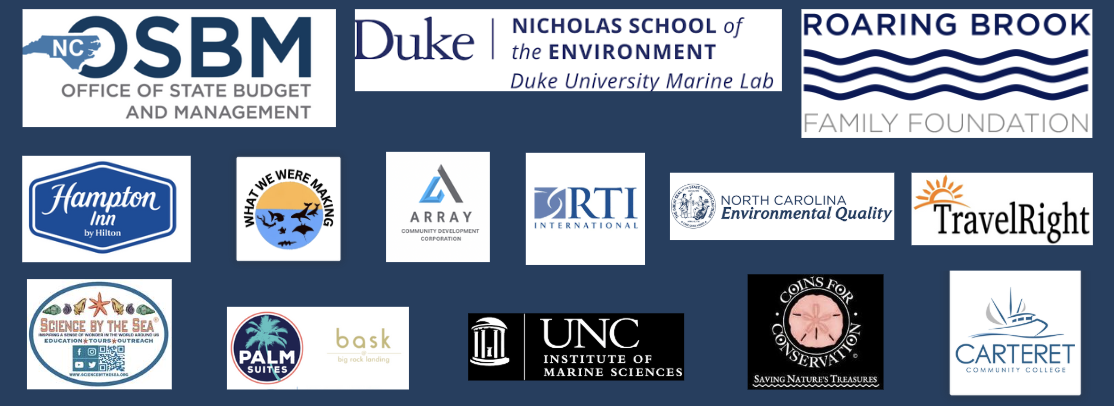
Find out more about our sponsorship opportunities on the registration page.
2025 Speakers:
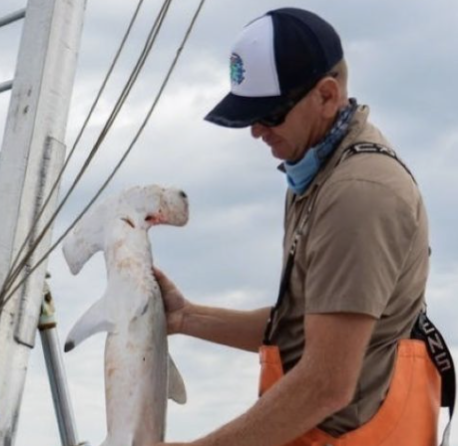 Keynote: Dr. Joel Fodrie, UNC-IMS
Keynote: Dr. Joel Fodrie, UNC-IMS
From Estuary to Legislature: North Carolina’s Coastal Fisheries at a Crossroads
Joel Fodrie is an ecologist who studies the population dynamics of fishes and shellfish, as well as the community ecology of estuarine systems. He has contributed 100+ peer-reviewed papers that explore mechanisms of population and community variability within coastal ecosystems. These articles appear in journals such as Proceedings of the National Academy of Sciences, Ecology, and BioScience. Over the last decade, he has become increasingly engaged in coastal resource management in North Carolina. At UNC-CH, he serves as a Thomas Willis Lambeth Distinguished Chair in Public Policy and as Director of the Institute of Marine Sciences.
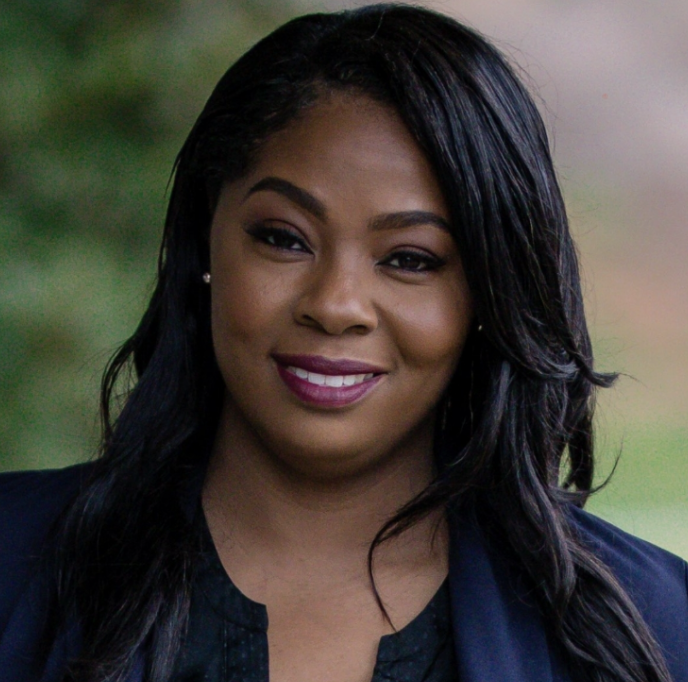
Monica Gibbs
Facilitator
Monica Gibbs is an award winning consultant with a journalism background and over a decade of community engagement and campaign consulting experience. She is the founder of Gibbs Consulting LLC, where she provides advocacy and media relations services to community based projects and grassroots organizations. She also has worked with many candidates for political office and has lobbied elected officials on the state level.Her work includes campaign management of municipal and federal campaigns, coordinating a reproductive justice and health education initiative, coordinating a redistricting education project. Her most recent roles include the United States House of Representatives, Coastal Carolina Riverwatch, and NAACP. Monica attended the School of Journalism and Mass Communication at The University of North Carolina at Chapel Hill. She is a graduate of the prestigious William C. Friday Fellowship for Human Relations where she joins a distinguished alumni network of North Carolina leaders. Her mission in life is to provide purposeful service to others and to be a voice for those who are marginalized and underrepresented. Monica and her family resides in Eastern North Carolina.
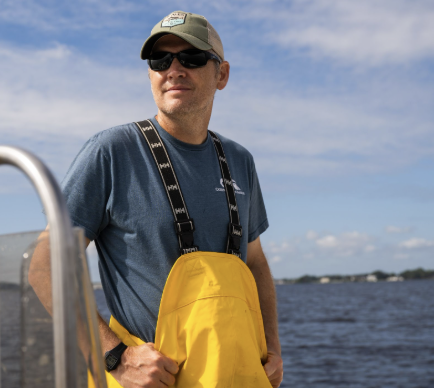 Dr. James W. Morley, Coastal Studies Institute, ECU
Dr. James W. Morley, Coastal Studies Institute, ECU
Ecosystem Interactions and Water Quality
Jim Morley leads a Fisheries Ecology lab at the Coastal Studies Institute on the Outer Banks. His lab is involved in a variety of field-based and modeling intensive research, particularly in the Albemarle-Pamlico estuarine ecosystem. Like many coastal U.S. regions, the Albemarle-Pamlico system is experiencing rapid change from climate, invasive species and novel pathogens, and increases in human impact. The magnitude and implications of these changes are being investigated to better inform coastal management.
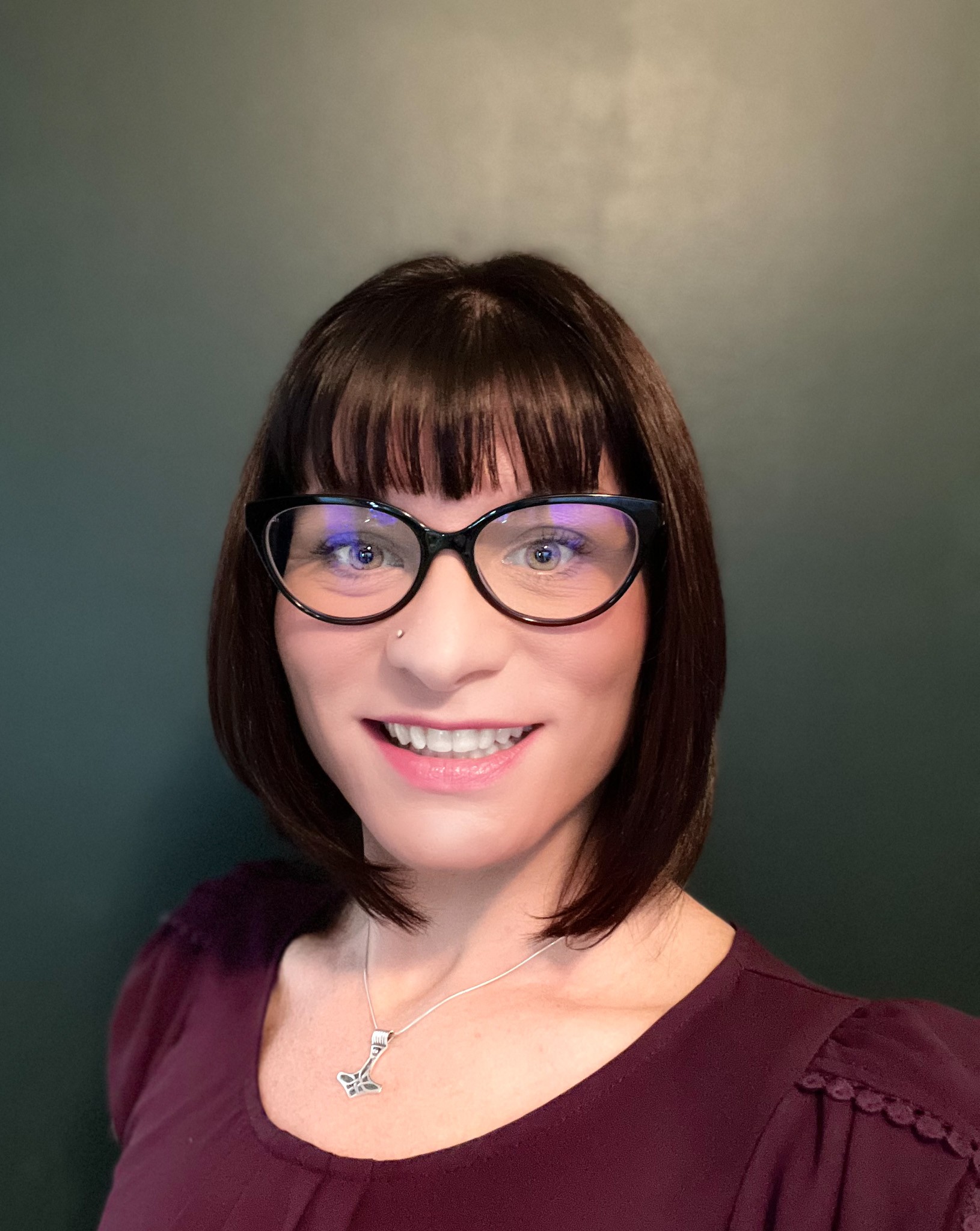 Dr. Frannie Nilsen, NC Department of Environmental Quality
Dr. Frannie Nilsen, NC Department of Environmental Quality
Impacts of PFAS on saltwater fish
Frannie Nilsen is the lead Environmental Toxicologist at the North Carolina Department of Environmental Quality with experience in a wide range of environmental disciplines and a passion for environmental stewardship. Frannie has worked several federal agencies throughout her career in toxicology including NOAA’s environmental health programs, NASA’s ecological program, NIST’s environmental chemistry group, and the EPA’s children’s health and sustainable communities’ initiative. Today she uses all these experiences to communicate environmental issues to policy makers and protect North Carolina.
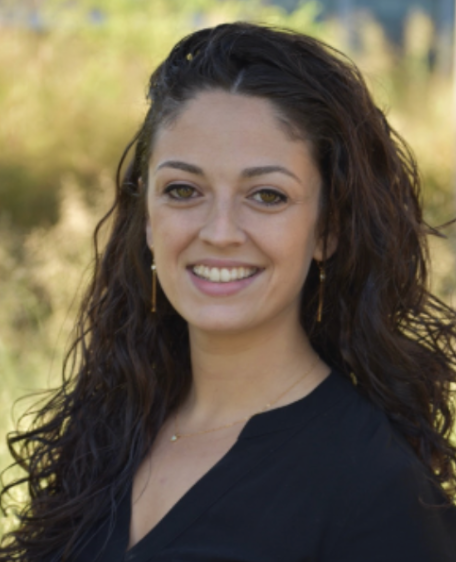 Chiara Klein, Duke University Superfund Research Center
Chiara Klein, Duke University Superfund Research Center
Communicating Cape Fear River Fish Consumption Risk in the Face of Environmental Health Uncertainty
Chiara has served as the Program Coordinator for the Community Engagement Core of the Duke University Superfund Research Center since 2021. In her role, she engages deeply with communities to form relationships and coalitions with the goal of enabling said communities to make informed decisions regarding their health and the health of their environments. The Community Engagement Core works with diverse populations and modalities, seeking to always be informed by and responsive to community needs. Chiara graduated from Duke University in 2021 with her Masters of Environmental Management degree, with a focus on Ecosystem Science and Conservation, and a certificate in Community-Based Environmental Management. Prior to her time at Duke, Chiara worked in environmental education, climate activism, and faith-based environmental advocacy. She is originally from New York and graduated Summa Cum Laude from Syracuse University with a Bachelor of Arts in English & Textual Studies.
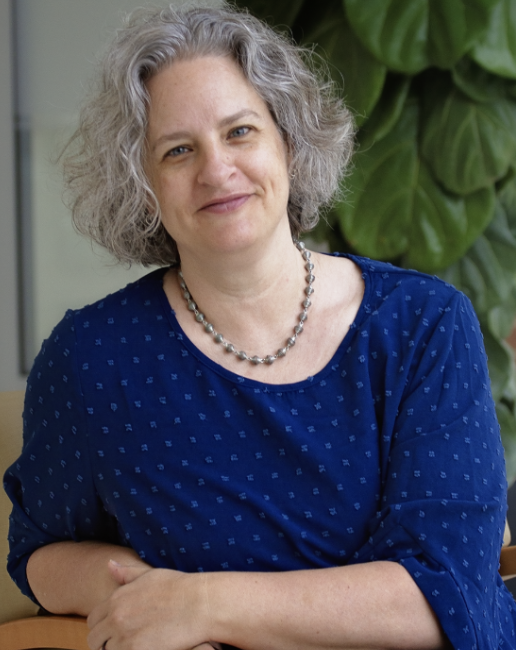 Megan Hoert Hughes, Duke University Superfund Research Center
Megan Hoert Hughes, Duke University Superfund Research Center
Communicating Cape Fear River Fish Consumption Risk in the Face of Environmental Health Uncertainty
Megan Hoert Hughes, MEM, is the Director for Research Translation at the Duke University Superfund Research Center. She has significant experience as a program manager, educator, and community advocate and has led environmental programs and courses at the Center for Public Engagement with Science (CPES) at the UNC Institute for the Environment, Chapel Hill, NC, the Environmental Finance Center at the University of Maryland in College Park, MD and the Center for Environmental Programs at Bowling Green State University in Bowling Green, OH. Megan has completed the Phase I Racial Equity Workshop through Racial Equity Institute (2014), Diversity, Equity, and Inclusion in Research (DEIR) Certificate through the UNC Odum Institute for Research in Social Science (2021), The Latinx Challenges Workshop through Durham Organizing Against Racism (2023), Entering Mentoring facilitator training through the Center for the Improvement of Mentored Experiences in Research (CIMER) (2023) and Right Relationship training in support of Waccamaw Siouan communities in eastern NC (2024). She has a Master of Environmental Management degree from Duke University with an emphasis on Resource Ecology and is a proud Detroiter.
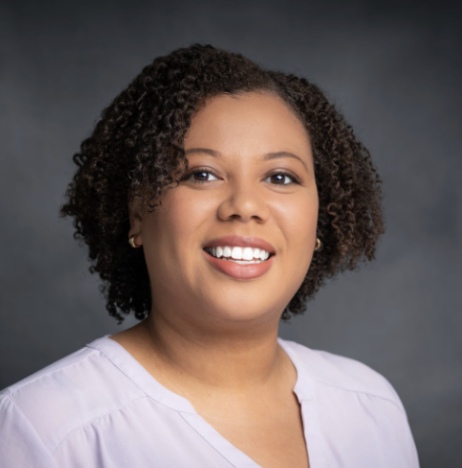 Dr. Imari Walker-Franklin, RTI International
Dr. Imari Walker-Franklin, RTI International
Understanding the Impact of Flooding on Water Quality: A Case Study of Hurricane Helene
As an analytical chemist, Dr. Walker-Franklin analyzes complex environmental and biological samples—including surface waters, wastewaters, sediment, and biological serums and tissues—to identify novel contaminants and metabolites. She utilizes gas and liquid chromatography systems coupled with high-resolution accurate mass spectrometry (GC-HRMS and LC-HRMS) to generate data, which she processes using non-target analysis workflows. One example of her work includes characterizing substances of emerging concern (ie. PFAS, microplastics, and wastewater tracers) in the French Broad River in Western North Carolina following Hurricane Helene.Dr. Walker-Franklin earned her Ph.D. in environmental engineering from Duke University, where she investigated the fate, occurrence, and transformation of polymer-associated chemicals in aquatic environments. She has presented her research on emerging chemicals of concern and plastic pollution at national press conferences, panels, and lectures. Dr. Walker-Franklin’s research interests include microplastics, emerging contaminants, and advancing non-target analysis workflows.
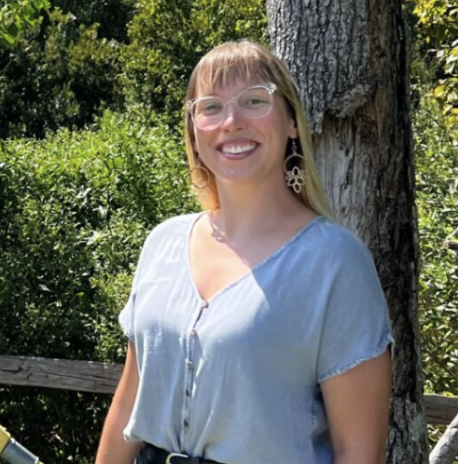 Riley Lewis, White Oak Waterkeeper, CCRW
Riley Lewis, White Oak Waterkeeper, CCRW
Lessons from the Advocacy Working Group
Riley is the White Oak Waterkeeper with Coastal Carolina Riverwatch. She protects the quality of water and quality of life in coastal NC through research, outreach and advocacy with local communities. Through her work at CCRW she hosts Advocacy Working Group meetings for community members, coordinates research projects around agricultural impacts to fisheries and the presence of PFAS and heavy metals in NC oysters, and oversees the work of CCRW’s amazing interns! Before CCRW, Riley grew up in Maryland and has spent the last decade in the Carolinas. She received her BS in Marine Science from the University of South Carolina and her MS in Coastal and Ocean Policy from the University of North Carolina Wilmington. Her studies and research focus on water pollutants and their impacts on local communities and she believes everyone deserves access to clean water.
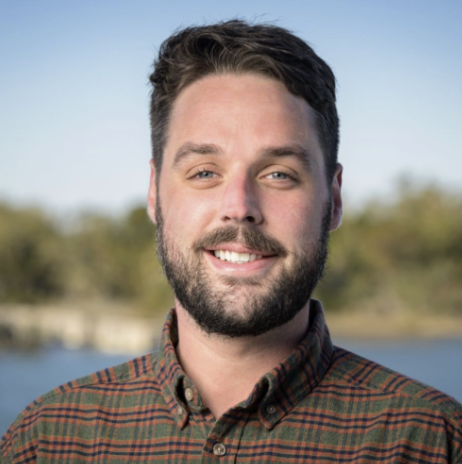 Kasen Wally, Division of Coastal Management
Kasen Wally, Division of Coastal Management
Coastal Resiliency in Action: Best Practices and Emerging Concerns
Kasen Wally is the Coastal Resiliency Specialist for the North Carolina Division of Coastal Management, located in Morehead City, NC. Alongside his colleagues in the Policy and Planning section, Kasen helps to manage the NC Resilient Coastal Communities Program, which provides technical and financial assistance to vulnerable communities in North Carolina that seek to increase their resilience to coastal hazards. Kasen has a bachelor’s in environmental science from Western Carolina University and a master’s in Natural Resource Management from Auburn University with a focus on coastal ecosystems and adaptive governance.
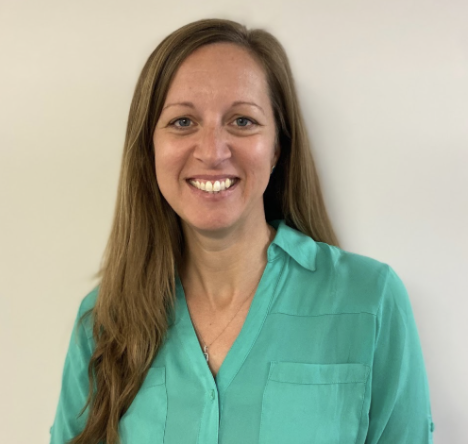 Jennifer Fickler, Division of Coastal Management
Jennifer Fickler, Division of Coastal Management
Coastal Resiliency in Action: Best Practices and Emerging Concerns
Jennifer Fickler is a Coastal Resiliency Specialist with the North Carolina Division of Coastal Management (DCM), based in Morehead City. She has been working with the Resilient Coastal Communities Program (RCCP) since May 2025. Before joining DCM, Jennifer served as a research specialist at East Carolina University, where she worked in Dr. Rachel Gittman’s coastal ecology lab at UNC’s Institute of Marine Sciences. Earlier in her career, Jennifer worked as an Air Quality Specialist for Mecklenburg County, where she helped manage a grant program aimed at reducing nitrogen oxide emissions in the Charlotte area. She holds a Bachelor of Science in Environmental Studies and a Master’s in Environmental Science from Virginia Commonwealth University.
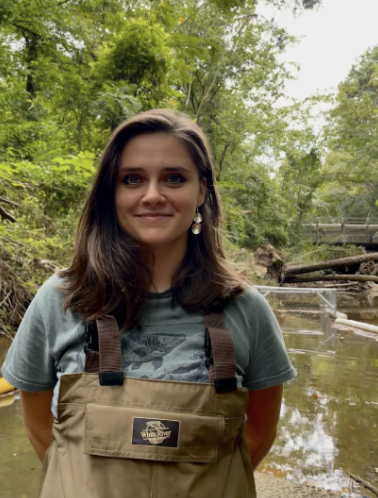 Madison Haley, NC Plastic Waste Coalition Advocate
Madison Haley, NC Plastic Waste Coalition Advocate
NC Plastics Coalition Update
Madison Haley is an advocate with the North Carolina Plastic Waste Reduction Coalition and a Ph.D. student in Biological and Agricultural Engineering at North Carolina State University. Her work focuses on reducing plastic pollution through a combination of scientific research, policy, and community engagement. At NC State, Madison researches how plastic debris moves through freshwater systems and works with a local coalition to inform and test effective solutions. Previously, she served as the Climate and Plastics Advocacy Fellow at Haw River Assembly, where she managed community science projects using trash traps, advocated for stronger waste reduction policies including bottle deposit legislation, and published The Cost of Litter in North Carolina, a report highlighting the financial burden of litter in our state. She also brings experience as a water resource engineer and as a contractor in the US EPA’s Office of Science Advisor, Policy, and Engagement. Madison holds a Master of Science in Public Health in Environmental Sciences and Engineering from the University of North Carolina at Chapel Hill and a Bachelor of Science in Civil and Environmental Engineering from George Washington University.
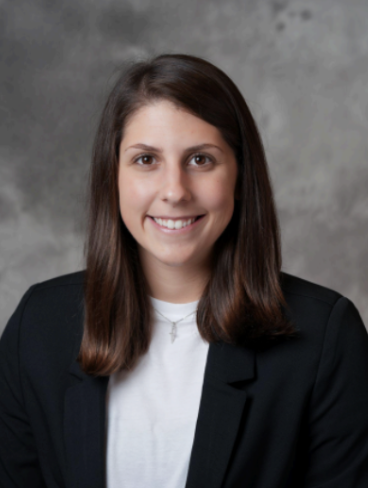 Caroline Zuber, Duke University
Caroline Zuber, Duke University
PFAS and Heavy Metals Research
Caroline Zuber is a Ph.D. candidate at Duke University in the Department of Civil and Environmental Engineering and a doctoral trainee in the Duke Superfund Research Center. She received her B.S. in Environmental Sciences and her B.A. in Chemistry from NC State University. Caroline’s research centers around environmental chemistry and seeks to better understand the movement and transformation of legacy contaminants in soil and water environments, with interests in human exposure risk and environmental health. In addition to her work on detecting and quantifying heavy metals and PFAS in coastal waters and oysters, Caroline also works on characterizing legacy heavy metal contamination in Durham city park soils to better identify human exposure risk and develop suitable remediation strategies. As a Western North Carolina native, Caroline is passionate about environmental justice, remediation, and education within local communities across North Carolina.
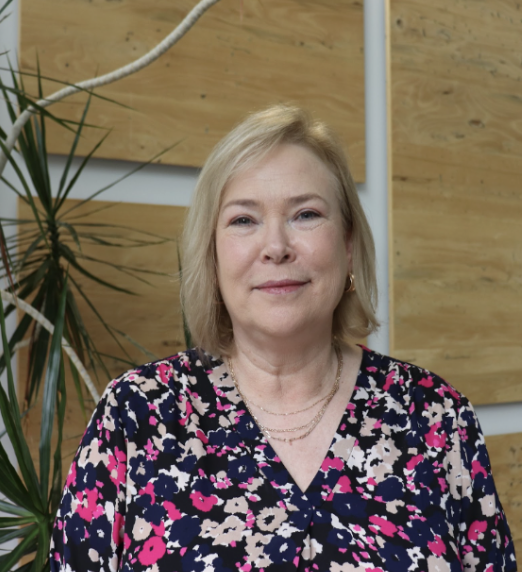 Sherri Stanley, NC DEQ Division of Waste Management
Sherri Stanley, NC DEQ Division of Waste Management
Landfill Leachate & DEQ Response
Sherri Stanley is the Permitting Branch Head for NC DEQ’s Division of Waste Management – Solid Waste Section. Sherri has been involved in the environmental regulatory field for close to 30 years. Her career has primarily focused on non-hazardous solid waste management ensuring that the siting, design, construction, operation, and closure of facilities such as municipal solid waste transfer stations, municipal solid waste landfills, C&D landfills, and coal ash landfills meet regulatory requirements and are protective of public health and the environment. Sherri earned her BS in chemical engineering from North Carolina State University.
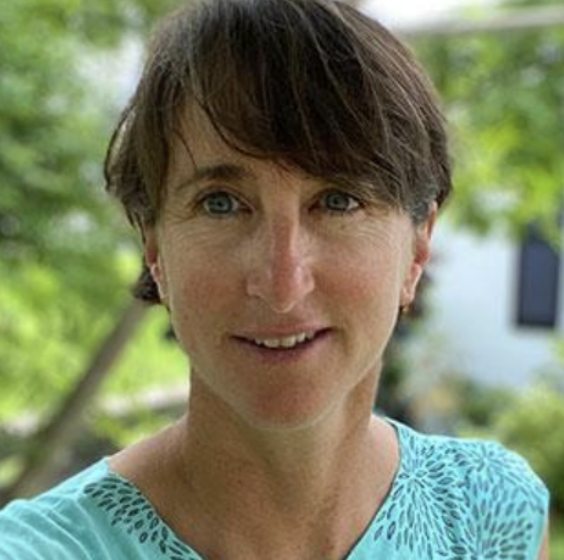 Dr. Liz DeMattia, Duke University
Dr. Liz DeMattia, Duke University
Facilitator
Liz is an ecologist at the Nicholas School of the Environment who is interested in the intersection of science and community. She is currently working on issues of plastic pollution education from a marine debris perspective and a stormwater/microplastic perspective. Liz has written curricula regarding marine debris, community science, and microplastics and collaborated with researchers at the EE lab of NCSU to study the role of intergenerational learning in changing perspectives on plastic pollution.
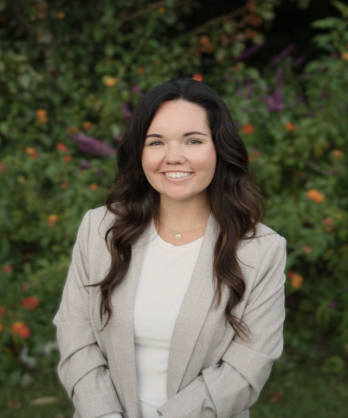 Emma Dempsey, UNC IMS
Emma Dempsey, UNC IMS
Storm Impacts on Rural Wastewater Systems
Emma Dempsey is a PhD candidate and environmental microbiologist at the UNC Institute of Marine Sciences. She investigates coastal water quality through a One Health lens, focusing on how antimicrobial resistance (AMR) genes from human-associated sources—wastewater treatment plants and animal feeding operations—enter and persist in estuaries. She is especially interested in how precipitation and storm events drive bacterial contamination and exposure risk. Her work combines culture-based assays with molecular tools to build practical surveillance frameworks and advance quantitative microbial risk assessments (QMRA) for coastal waters. She earned her M.Sc. from Pace University in 2020, where she studied how urban runoff affects dissolved oxygen in the Long Island Sound (NY). Before beginning her PhD, Emma worked in Washington, DC, as an environmental scientist contracting with the U.S. Environmental Protection Agency, supporting NPDES permitting and assisting wastewater treatment operators with federal compliance.
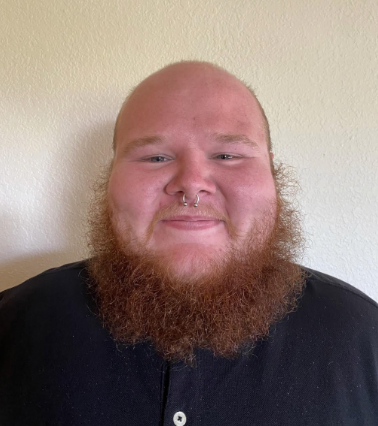 Conner Twiddy, Environmental Planner, Nags Head
Conner Twiddy, Environmental Planner, Nags Head
Best Management Practices for Septic Health
Conner Twiddy serves as the Environmental Planner for the Town of Nags Head, where he leads the Town’s Todd D. Krafft Septic Health Initiative a vital program aimed at improving wastewater management and protecting local water quality. His role includes overseeing septic system maintenance, subsurface wastewater operations, and routine water sampling. He is also responsible for managing the Town’s groundwater, lowering pumps and ensuring ongoing environmental monitoring and compliance. Conner additionally coordinates community education and outreach efforts and facilitates the Town’s Septic Health Advisory Committee. With extensive hands-on experience in environmental systems and a deep commitment to sustainable practices, Conner is dedicated to increased public engagement in the Septic Health Initiative and hopes to inspire the adoption of similar programs in other communities.
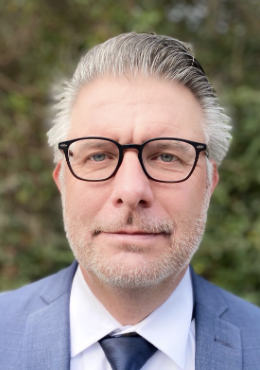 David M. Ryan, P.E. Town Engineer, Nags Head
David M. Ryan, P.E. Town Engineer, Nags Head
Best Management Practices for Septic Health
David M. Ryan, P.E., serves as the Town Engineer for the Town of Nags Head, North Carolina. With over 25 years of engineering experience in coastal environments, he has worked extensively across both public and private sectors. His areas of expertise include water resources, shoreline management, wastewater systems, stormwater management, and the planning and implementation of capital infrastructure improvement projects. Mr. Ryan is a licensed Professional Engineer in the state of North Carolina and holds a degree from the State University of New York Polytechnic Institute. He is recognized for his comprehensive technical knowledge and practical insight, which he applies to develop adaptive, holistic planning strategies. His work drives integrated, forward-thinking solutions that promote environmental sustainability and strengthen infrastructure resilience in the Town of Nags Head, an achievement recently honored by the American Society of Engineers with the prestigious Orville T. Magoon Sustainable Coasts Award.
x
~2024~
The Water Quality for Fisheries Symposium 2024 is an annual event that provides a collaborative forum for the exchange of information on recent research, infrastructure best management practices, policy development, restoration and resilience projects, and advocacy that protects the quality of water and quality of life for all in coastal NC.
x
The Water Quality for Fisheries Symposium will be held at the
Duke Marine Lab in Beaufort, NC
October 9, 10, 11 2024.

Building stakeholder and public support for improved water quality in North Carolina.
Agenda:

Thank You Sponsors

2024 Water Quality For Fisheries Symposium Raffle
This year at the WQ4F Symposium, CCRW will be raffling off items to support our fisheries work. If you have items you would like to donate, please email Waterkeeper@coastalcarolinariverwatch.org with a picture and description.
2024 Items:
- CCRW Swag Bag
- A FREE 2 night stay at Palm Suites of Atlantic Beach

Thank you to our sponsors at Palm Suites for their generous donation.
Keynote Address: Veronica Carter and Chiara Klein
Veronica Carter

Presentation: Increasing access of communities impacted by chemical contaminants in wild-caught fish to information and policy making processes in North Carolina: Chiara Klein, Duke University, and Veronica Carter, Councilperson for the town of Leland
Biography: Veronica Carter is a former Civil Servant (International and US) and retired Army officer with over 43 years’ experience in managing complex logistics operations, often under austere conditions. She has served on the Board of Directors for Cape Fear and Brunswick County’s Habitat for Humanity affiliates. She also served on the Town of Leland’s Parks and Recreation Board.
Veronica has devoted much of her time ensuring Environmental Justice by empowering, advocating, and educating EJ communities in southeastern NC. She was appointed to serve on the inaugural North Carolina Department of Environmental Quality Secretary’s Environmental Justice and Equity Board. She currently serves on the North Carolina Coastal Federation Board of Directors. In November 2019, Veronica was elected to and is currently serving as a Council-member for the Town of Leland, North Carolina. Leland is one of the fastest growing municipalities in North Carolina.
Chiara Klein

Presentation: Increasing access of communities impacted by chemical contaminants in wild-caught fish to information and policy making processes in North Carolina: Chiara Klein, Duke University, and Veronica Carter, Councilperson for the town of Leland
Biography: Chiara has served as the Program Coordinator for the Community Engagement Core of the Duke University Superfund Research Center since 2021. In her role, she engages deeply with communities to form relationships and coalitions with the goal of enabling said communities to make informed decisions regarding their health and the health of their environments. The Community Engagement Core works with diverse populations and modalities, seeking to always be informed by and responsive to community need. Chiara graduated from Duke University in 2021 with her Masters of Environmental Management degree, with a focus on Ecosystem Science and Conservation, and a certificate in Community-Based Environmental Management. Prior to her time at Duke, Chiara worked in environmental education, climate activism, and faith-based environmental advocacy. She is originally from New York and graduated Summa Cum Laude from Syracuse University with a Bachelor of Arts in English & Textual Studies.
2024 Speakers
Glenn Skinner

Biography: Glenn Skinner was born and raised in Morehead City. Like many others in the area, Skinner comes from a long line of commercial fishermen. Skinner worked in a variety of fisheries ranging from clams and oysters to flounder and crab. These days, he enjoys recreational fishing and is the executive director of the North Carolina Fisheries Association, acting as an advocate for the commercial fishing industry.
Thomas Newman

Biography: Thomas Newman is a full time commercial fisherman and a part time employee with the North Carolina Fisheries Association (NCFA). He grew up in Hyde and comes from a long line of commercial fishermen. He also is on multiple advisory panels and committees dealing with federal and state fisheries management issues. Thomas understands and sees firsthand how water quality, the development of our coastal areas, and increased access have impacted our fisheries. He is interested in topics such as failing/undersized sewage systems, hardening of our river and estuary shorelines, riparian buffers and the lack thereof, and coastal development/population growth.
Chris Matteo

Biography: Chris began farming oysters full-time in 2013 when he started Chadwick Creek Oysters and Seed Nursery in Pamlico County, N.C. In 2019, he founded Siren’s Cove Shellfish, a second oyster farm and shellfish dealership in Carteret County, and currently has plans to build two more farms. Chadwick Creek’s seed nursery business has supported the growth of North Carolina’s booming shellfish industry from about eight growers in 2013 to more than 120 today. Chris has advised many new growers as they set up their farms. His efforts have positively impacted our estuarine water quality, as shellfish farmers currently filter 500,000,000+ gallons of water a day for free for North Carolina’s citizens. In 2018, Chris became President of the North Carolina Shellfish Growers Association. He is also a board member and Vice President of the East Coast Shellfish Growers Association. Chris spends a great deal of time advocating for shellfish farmers in Raleigh and Washington, DC. In 2023, he received a Coastwide Pelican Award from North Carolina’s Coastal Federation for his unwavering dedication to grow NC’s mariculture industry. Before oyster farming, Chris worked in the hedge-fund and technology industries. He graduated from the University of Pennsylvania with a B.A. in International Relations, and is also a graduate of Phillips Exeter Academy.
Mackenzie Todd

Biography: Mackenzie Todd is the Coastal Resiliency Coordinator for the North Carolina Division of Coastal Management (DCM). She has been working on the Resilient Coastal Communities Program (RCCP) since 2020. Before DCM, she was the Town Planner for Morehead City, where she was the Community Rating System Coordinator (CRS), which is a program the town participates in through the National Flood Insurance Program that offers residents in the Special Flood Hazard Area a discount on their flood insurance premiums. Mackenzie received her Bachelor’s of Environmental Science and her Master’s in Coastal and Ocean Policy from UNC Wilmington. She also recently became a Certified Floodplain Manager (CFM).
Amin Davis

Biography: Amin is an Environmental Scientist with 25 years of professional experience conducting environmental assessment, water resource management and watershed improvement activities. He obtained a BS degree in Marine & Environmental Science from Hampton University (VA) and a Master of Zoology degree from NC State University. He has been employed with NC DEQ since 2008 and has been a grant manager for the Division of Water Resources since 2016. Prior to employment with the State, he worked in the private sector with several engineering consulting companies in the Triangle region. Amin is passionate about promoting the community benefits of green infrastructure and serves as a volunteer with several environmental nonprofit organizations. In his spare time he enjoys watching documentary films, outdoor recreation activities and music of nearly all kinds.
Jill Fusco

Biography: Jill serves the central piedmont to the coast as the Eastern Field Representative for the NC Land and Water Fund (NCLWF). She is responsible for outreach and application guidance for local and state agencies and non-profit organizations. She also assists in the grant application evaluation and field review. Prior to joining NCLWF, she was a grant administrator for the Parks and Recreation Trust Fund and Land and Water Conservation Fund for the NC Division of Parks and Recreation. Jill has also worked as a land steward for a regional land trust and as an environmental educator. She graduated from NC State University with a B.S. in Zoology and a Graduate Certificate in Geospatial Information Systems (GIS).
Zoe Gabrielso
 Biography: Zoe Gabrielson is an Associate Attorney at the Southern Environmental Law Center (SELC) working on environmental justice, land use and waste management, and water issues. Zoe has worked for SELC since 2023, where she was previously a Staback Legal Intern in 2022. Zoe attended Duke University School of Law as a law student and graduated from the University of Kentucky with a B.S. in Agricultural Economics and B.B.A. in Marketing.
Biography: Zoe Gabrielson is an Associate Attorney at the Southern Environmental Law Center (SELC) working on environmental justice, land use and waste management, and water issues. Zoe has worked for SELC since 2023, where she was previously a Staback Legal Intern in 2022. Zoe attended Duke University School of Law as a law student and graduated from the University of Kentucky with a B.S. in Agricultural Economics and B.B.A. in Marketing.
xx
xx
x
Suzanne Wheatcraft

Biography: Suzanne is a hydrogeologist with a background in environmental consulting for Fortune 500 clients like Kodak, Xerox, and Bausch & Lomb. She was also the Director of Environmental Health & Safety for the Rochester, New York schools, one of New York’s Big Five districts. Suzanne currently serves on the Coastal Carolina Riverwatch Board and, along with Harriet Altman of Beaufort, NC, founded The Sierra Club’s Plastic Free By The Sea committee. In her spare time, she volunteers at the NC Aquarium and Cape Lookout National Seashore.
Dr. Liz DeMattia
Biography: Liz is an ecologist at the Nicholas School of the Environment who is interested in the intersection of science and community. She is currently working on issues of plastic pollution education from a marine debris perspective and a stormwater/microplastic perspective. Liz has written curricula regarding marine debris, community science, and microplastics and collaborated with researchers at the EE lab of NCSU to study the role of intergenerational learning in changing perspectives on plastic pollution.
Kasen Wally
 Biography: Kasen Wally is the Coastal Resiliency Specialist for the North Carolina Division of Coastal Management, located in Morehead City, NC. Alongside his colleagues in the Policy and Planning section, Kasen helps to manage the NC Resilient Coastal Communities Program, which provides technical and financial assistance to vulnerable communities in North Carolina that seek to increase their resilience to coastal hazards. Kasen has a bachelor’s in environmental science from Western Carolina University and a master’s in Natural Resource Management from Auburn University with a focus on coastal ecosystems and adaptive governance.
Biography: Kasen Wally is the Coastal Resiliency Specialist for the North Carolina Division of Coastal Management, located in Morehead City, NC. Alongside his colleagues in the Policy and Planning section, Kasen helps to manage the NC Resilient Coastal Communities Program, which provides technical and financial assistance to vulnerable communities in North Carolina that seek to increase their resilience to coastal hazards. Kasen has a bachelor’s in environmental science from Western Carolina University and a master’s in Natural Resource Management from Auburn University with a focus on coastal ecosystems and adaptive governance.
Pat Donovan-Brandenburg
 Presentation: New River Oyster Highway: Pat Donovan-Brandenburg, City of Jacksonville Stormwater Manager (20 minutes)
Presentation: New River Oyster Highway: Pat Donovan-Brandenburg, City of Jacksonville Stormwater Manager (20 minutes)
Biography: Stormwater and Soil/Erosion Control Manager for the City of Jacksonville, North Carolina. She has been with the city since 1988, bringing over three decades of experience in environmental management and water quality improvement. As a marine biologist, Donovan-Brandenburg has been instrumental in various restoration projects, particularly focusing on the New River’s recovery.
One of her notable projects includes the “Oyster Highway,” which involved creating artificial oyster reefs to help filter pollutants from the water. This initiative has been crucial in restoring the New River’s ecosystem, supporting both the local environment and the fishing industry (Jacksonville NC Gov) (The Assembly NC) (NC Ag Insider).
Donovan-Brandenburg’s work has also extended to managing stormwater systems and addressing issues such as erosion and sediment control, particularly following natural disasters like hurricanes. She has been a key figure in securing funding for essential environmental projects, ensuring that Jacksonville’s waterways are maintained and protected (NC Ag Insider).
Nick Green

Biography: Nick Green is a project manager with the North Carolina Coastal Federation. He has been with the Coastal Federation since August of 2023, working on marine debris removal efforts, oyster shell recycling efforts, and various water quality projects. He is a Carteret County native who grew up exploring and fishing Bogue Sound, the Newport River, and the surrounding areas. His academic background is in Crop and Soil Science, graduating from North Carolina State University. Nick spends most of his free time taking pictures, surfing, and fishing.
Caroline Zuber
 Presentation: PFAS and Heavy Metals in Wild and Farm-Raised Oysters
Presentation: PFAS and Heavy Metals in Wild and Farm-Raised Oysters
Caroline Zuber, Duke University and Riley Lewis, Waterkeeper, Coastal Carolina Riverwatch
Biography: Caroline is a second-year Ph.D. Student at Duke University in the Department of Civil and Environmental Engineering. She attended NC State University for her undergraduate studies, where she received her B.S. In Environmental Sciences and her B.A. in Chemistry in 2023. As a long-time North Carolina resident, Caroline is passionate about environmental justice, remediation, and education within local communities and aims to pursue a research career centered around protecting and advocating for those who call NC home. Caroline’s research centers around trace metal biogeochemistry and seeks to better understand how novel and legacy contaminants move and transform within soil and water environments. She believes such knowledge is key to better mitigating pollution exposure pathways and improving the overall health of our natural world, including those who inhabit it.
Grady O’Brien

Presentation: Plastic Pollution Advocacy Workshop
Notes about the workshop to include in social media post: Hear about Plastics (Priority #4 in the Water Quality for Fisheries Assessment) and how local, State, and federal policies can provide solutions to protecting coastal waters and fisheries from plastic pollution. Develop your advocacy skills by using your local voice and sharing your local impacts with decision-makers.
Biography: Grady is a Policy Associate at the North Carolina Conservation Network. He advocates at the North Carolina General Assembly, where he also tracks relevant environmental legislation and provides updates to NCCN’s affiliates. Grady is the facilitator of the North Carolina Plastic Waste Reduction Coalition, a group of stakeholders working on the issue of plastic waste and pollution. He also works on water quality and regulatory issues. Grady lives in Apex, NC with his wife and two-year-old daughter. He enjoys playing basketball, making playlists, and reading novels and political history.
Samantha Krop

Presentation: State of the Coastal Waters – Water Quality Panel
Notes about the panel to include in social media posts: Hear from all of the coastal North Carolina Water and Riverkeepers about their watersheds, community priorities, and current events in addressing water quality for fisheries throughout the coast.
Biography: Samantha Krop is the Neuse Riverkeeper with Sound Rivers, a nonprofit that advocates for the health of the Neuse watershed from Falls Lake to the Pamlico Sound. Originally a native of Florida’s Gulf Coast, Sam spent her summers in North Carolina where she fell in love with the landscape here. Sam has spent her professional life working at the intersection of education and environmental activism, where she uses her talents in writing, community organizing, public speaking, and fieldwork to advocate for the environment and the communities who rely on it.
Before moving to North Carolina to become a riverkeeper, she spent ten years in Oregon working on forestland conservation and instructing high school, undergraduate, and graduate-level classes in environmental justice. Today, Sam works in defense of the Neuse River watershed and all those who rely on it through water sampling, public education, community organizing, and political advocacy.
Erin C. Bryan-Millush

Presentation: North Carolina Recreational Water Quality – Monitoring Coastal Waters for 26 Years
Biography: Mrs. Bryan-Millush is an Environmental Program Supervisor with the Shellfish Sanitation and Recreational Water Quality Section within the state Division of Marine Fisheries. She received her B.S. in Environmental Science with an emphasis in biological sciences from the University of North Carolina at Wilmington. Mrs. Bryan-Millush started her career with the state as a temporary employee in April 2003 and later became permanent in January 2004. Erin previously worked for North Carolina State University researching surface and subsurface water quality using constructed wetlands for bacteriological removal. Her current responsibilities include managing the state’s coastal Recreational Water Quality program through the EPA’s BEACH Act and implementing all FDA requirements for the section three laboratories as the Quality Assurance Laboratory Officer.
Katey Zimmerman

Presentation: State of the Coastal Waters – Water Quality Panel
Notes about the panel to include in social media posts: Hear from all of the coastal North Carolina Water and Riverkeepers about their watersheds, community priorities, and current events in addressing water quality for fisheries throughout the coast.
Biography: Katey began in her position as the Pamlico-Tar Riverkeeper for Sound Rivers in September of 2023. This role entails monitoring and advocating for the health of the Pamlico-Tar River and its tributaries from Oxford to Washington, NC. Before joining the Sound Rivers team, Katey graduated Magna Cum Laude with a degree in Sustainability and Coastal Resilience with a concentration in Science and Ecosystems from Coastal Carolina University in South Carolina. Her background includes running the Swim Guide program for the Waccamaw Riverkeeper and coordinating outreach events, teaching children and adults about the watershed and how to protect it.
Astrid Schnetzer

Presentation: Food Web Transfer of Cyanobacterial Toxins in North Carolina Coastal Waters
Biography: Astrid Schnetzer is a biological oceanographer and plankton ecologist at the rank of professor at North Carolina State University and she serves as the Director of the NC Center for Coastal Algae, People, and Environment (NC C-CAPE). The mission of this Ocean and Human Health Center is to understand, predict, and reduce risks to human health from cyanobacterial Harmful Algal Blooms in coastal waters. Schnetzer received her MS in Zoology/Ecology and PhD in Marine Biology from the University of Vienna, Austria. Her research team focuses on how natural and anthropogenic processes, such as ocean pollution, impact plankton assemblages and how changes in plankton community structure and diversity impact matter and energy flux through food webs. She investigates these topics in freshwater and oceanic environments including Coastal Carolina, the Gulf of Mexico and the Arctic.
David Cerino

Presentation: Enhancing resources to grow fisheries and aquaculture industries in Eastern North Carolina
Biography: David Cerino is the Chair of the Aquaculture Technology Program at Carteret Community College (CCC) in Morehead City, NC. The primary focus of his work is on education, training, and workforce development. CCC carries out applied research to improve aquaculture productivity and sustainability. Collaboration with industry, academic partners, regulators, and NGOs offers opportunities for students to engage in experiential learning and support industry growth. To learn more about the CCC Aquaculture program visit http://www.carteret.edu/programs/aquaculture-technology/
David Sneedxx

Presentation: Fisheries Advocacy Panel
Note for media post: Hear from North Carolina fisheries representatives about impacts to their industry, how water quality can impact their industry, and next steps towards protecting water quality for fisheries.
Biography: David Sneed is the Executive Director, Coastal Conservation Association North Carolina (CCA NC). A North Carolina native, David grew up in Greenville, NC and is a 1987 graduate of NC State University. He assumed the role of Executive Director for CCA NC in April 2014 and currently splits his time between Raleigh and the Pamlico River. CCA NC is a community of conservationists and recreational anglers working to promote sound management of public trust marine and estuarine resources to protect those resources for the enjoyment of current and future generations.
Kemp Burdette

Presentation: State of the Coastal Waters – Water Quality Panel
Notes about the panel to include in social media posts: Hear from all of the coastal North Carolina Water and Riverkeepers about their watersheds, community priorities, and current events in addressing water quality for fisheries throughout the coast.
Biography: Kemp Burdette has been the Cape Fear Riverkeeper at Cape Fear River Watch for fourteen years, working to protect and improve the water quality of the North Carolina’s largest and most diverse watershed. He is a Wilmington native who grew up exploring the waterways and swamps that make our area so special. Kemp has lived and traveled around the world as a US Navy search and rescue swimmer, a Fulbright Scholar, and a Peace Corps volunteer. Kemp is a Board Member of the Waterkeeper Alliance an international clean water advocacy organization fighting to protect the world’s waterways. At home and abroad Kemp has always been interested in the way humans interact with their environment. His academic background is in geology and history, graduating from UNCW magna cum laude with honors, and he holds a master of public administration (MPA), also from UNCW. He also holds a certificate in nonprofit management from Duke University. Kemp spends most of his free time with his two daughters Olivia and Caroline traveling or exploring the waterways and swamps of the Lower Cape Fear Region.
Carey Hamil

Presentation: Fisheries Advocacy Panel
Note for media post: Hear from North Carolina fisheries representatives about impacts to their industry, how water quality can impact their industry, and next steps towards protecting water quality for fisheries.
Biography: Carey Hamil was born in Atlanta, Georgia where he was raised in the metro Atlanta area until he enlisted in the Marines in 1996. Carey served mostly at an MV-22b Aviation Electrician, also filling billets as a recruiting manager, and MV-22 electronics instructor. In 2007 Carey earned an associate’s degree for Professional Aeronautics from Embry Riddle University. He retired from the Marines in 2021 at the rank of Master Sergeant and completed his Bachelor of Science degree with a concentration in Fish and Wildlife Management from American Military University in 2022. Carey currently volunteers with Back Country Hunters and Anglers (BHA), as the President of the Lejeune Armed Forces Initiative (AFI). This year Lejeune AFI participated in the building of sea turtle nest protective devices at Hammocks Beach State Park (HBSP). Lejeune AFI also coordinated the effort and rebuilt the fishing pier located at HBSP. Lejeune AFI also coordinates annual hunting and fishing classes that provides and entry level hunter/angler with an introduction into the outdoors. North Carolina BHA and Lejeune AFI were instrumental in the national BHA action plan to protect recreational anglers access to flounder in the inner coastal waters of North Carolina.
Rachel Noble, PhD

Presentation: Stormwater issues along the coastal plain: water quality, infrastructure, and exposure
Biography: Rachel Noble is a professor at UNC Chapel Hill’s Institute of Marine Sciences in Morehead City, NC. She has been working on water quality issues on both coasts of the US for over 25 years, with an eye to improving the ability of municipalities and coastal towns to prioritize and manage their stormwater issues in the context of unprecedented growth and development. Her laboratory specializes in using advanced molecular methods for the quantification of important viral and bacterial pathogens that can cause illness in humans exposed to contaminated waters and shellfish. Her laboratory has also been collaborating with NC State CMAST to support the shellfish aquaculture industry across the state of NC. She has previous experience in post-tropical storm and hurricane assessments of water quality, but is also interested in the performance of coastal infrastructure during the summer season, high use periods. Her laboratory is actively conducting research on rural wastewater systems to assess the impact of antimicrobial resistance in rural wastewater influent and effluent discharge. Dr. Noble was a co-founder of the Adopt-A-Drain program, and works actively with the Duke University Community Science Initiative to support the engagement and education of coastal communities in water quality protection, and plastics reduction.
Riley Lewis

Presentation: Multiple: PFAS and Heavy Metals in Wild and Farm-Raised Oysters – Pure Farms, Pure Waters – State of the Coastal Waters – Water Quality Panel
Biography: Riley is the White Oak Waterkeeper with Coastal Carolina Riverwatch. She protects the quality of water and quality of life in coastal NC through research, outreach and advocacy with local communities. Through her work at CCRW she hosts Advocacy Working Group meetings for community members, coordinates research projects around agricultural impacts to fisheries and the presence of PFAS and heavy metals in NC oysters, and oversees the work of CCRW’s amazing interns! Before CCRW, Riley grew up in Maryland and has spent the last decade in the Carolinas. She received her BS in Marine Science from the University of South Carolina and her MS in Coastal and Ocean Policy from the University of North Carolina Wilmington. Her studies and research focus on water pollutants and their impacts on local communities and she believes everyone deserves access to clean water.
Rachel Bisesi

Presentation: NC Marine Debris Action Plan Updates
Biography: Rachel, from Pine Level, North Carolina, joined the North Carolina Coastal Federation as a Coastal Education Coordinator in 2013. She holds a Master of Science in Coastal Marine and Wetland Studies from Coastal Carolina University and a Bachelor of Arts in Environmental Studies from the University of North Carolina at Wilmington. Previously, Rachel worked as an educator in multiple coastal education centers, as a marine research technician and as a state park naturalist. Her background lies in linking coastal environments with education and outreach.
x
x
“Tidal Alert: The State of Water Quality and its Impacts on Coastal Fisheries” Film
Program Overview:
Click here for the Water Quality for Fisheries Program Overview
Program Process
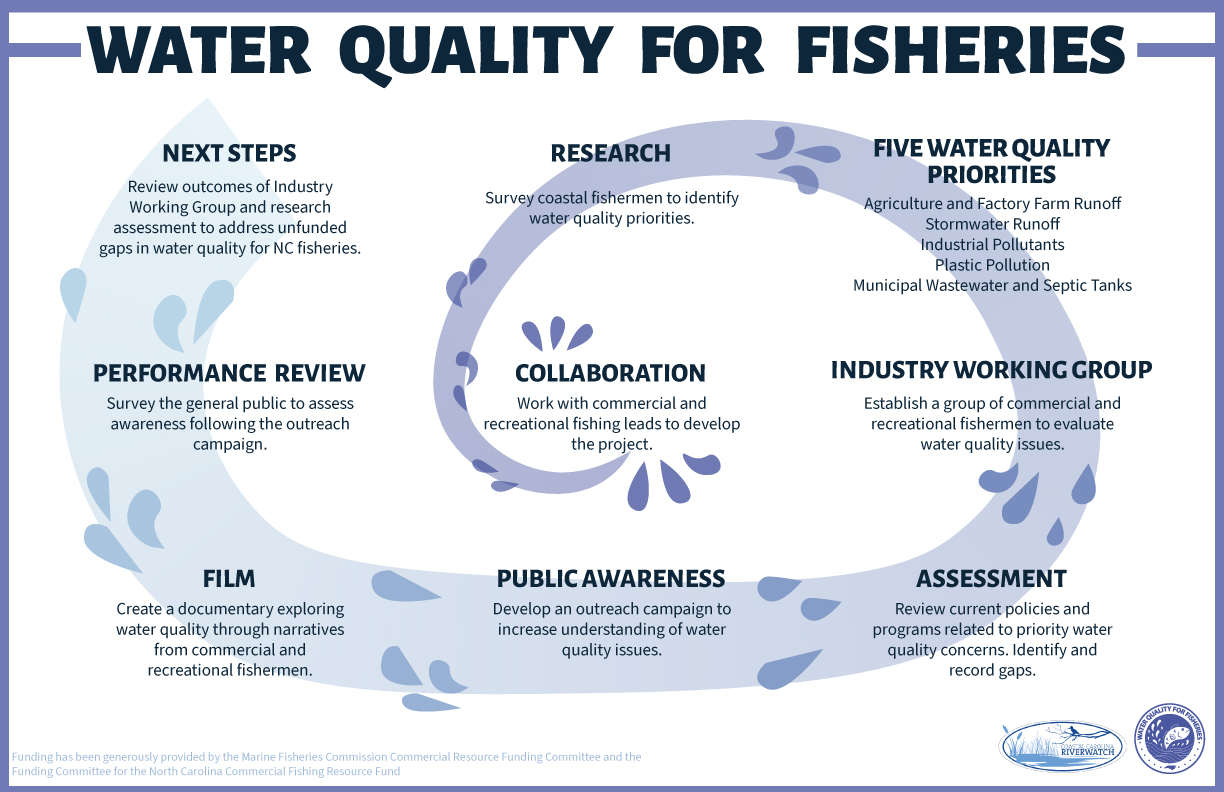
Collaboration
The Water Quality for Fisheries Program has been developed through collaboration with the coastal commercial and recreational fishing community, water quality researchers, and coastal water quality advocacy organizations.
Research
Survey Results Identifying Water Quality Concerns Prioritized by Coastal Fishing Representatives:
Carolina_Riverwatch_Summary_Report#1
Research and Assessment on Water Quality Concerns Prioritized by Coastal Fishing Representatives:
Five Water Quality Priorities
Water Quality Priorities Identified by Coastal North Carolina Fisheries Representatives:
- Agriculture and Factory Farm Runoff
- Stormwater Runoff from Roads, Highways, and Parking Lots
- Industrial Pollutants
- Plastic Pollution
- Municipal Wastewater Treatment Plants and Septic Tanks

